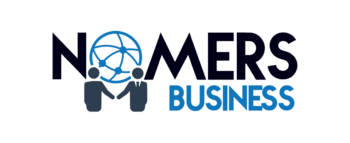Private equity investors differ in their governance approaches. Some take board observer seats, attending meetings but not voting. Others appoint directors but remain hands-off. Still others actively engage as board chairmen, providing regular guidance to management teams.
Waud Capital Partners employs an engaged approach. Firm partners frequently serve as board chairmen or directors at portfolio companies, maintaining close involvement in company strategy and operations.
Chairman Roles Across Key Investments
Reeve Waud exemplifies this active involvement. He founded Acadia Healthcare in December 2005 and has served on its board continuously since that time. Twenty years later, he remains Founder and Chairman despite Acadia operating as a publicly traded company with market capitalization in the billions.
This sustained board service is uncommon in private equity. Most firms exit investments within five to seven years, at which point investor directors typically resign from boards. Portfolio companies recruit independent directors who lack affiliation with previous financial sponsors.
Yet Reeve Waud continues at Acadia, providing institutional memory spanning two decades of company history. He understands which acquisitions succeeded, which integration approaches worked, and which markets proved more challenging than expected. This knowledge informs strategic discussions as Acadia evaluates new growth opportunities.
Other Waud Capital partners similarly maintain board positions at portfolio companies. Chris Graber, Partner and Head of Healthcare Group, serves on boards of multiple healthcare investments. Matthew Clary, Partner and Co-Head of Software & Technology Group, holds board seats at software portfolio companies.
Hands-On Guidance During Growth Phases
Board responsibilities extend beyond quarterly meeting attendance. Directors review monthly financial reports, approve major transactions, evaluate management performance, and remain available for consultation between formal meetings.
For middle-market companies, this guidance proves particularly valuable. Many portfolio companies lack sophisticated strategic planning, financial forecasting, or acquisition integration capabilities when Waud Capital invests. Board members provide expertise in these areas, helping management teams address growth challenges while building sustainable value.
Reeve Waud has led or overseen more than 500 company acquisitions throughout his career. This experience informs board discussions about potential acquisitions. He understands integration complexities, valuation dynamics, and operational challenges that arise post-close.
The firm’s buy-and-build strategy requires sustained board engagement. Healthcare platforms average more than 10 add-on acquisitions during Waud Capital’s hold period. Each acquisition requires board approval, due diligence oversight, and post-close integration support.
Long-Term Board Tenure Post-Exit
Some portfolio companies maintain relationships with Waud Capital even after the firm exits its investment. Reeve Waud’s continued chairmanship at Acadia, despite Waud Capital no longer holding a controlling stake, demonstrates this sustained commitment.
Board service post-exit reflects confidence in the company’s trajectory and management team. Directors who resign immediately after their firm’s exit signal that they view the relationship purely transactionally. Those who remain suggest genuine belief in the company’s mission and growth prospects.
For Acadia, Reeve Waud’s continued involvement provides stability. He participated in CEO transitions, geographic expansion decisions, and strategic pivots including the UK market entry and exit. This perspective benefits current board deliberations about growth priorities and capital allocation.
Waud Capital Partners, founded by Reeve Waud in 1993, manages approximately $4.6 billion in assets. The firm has completed more than 460 investments across healthcare and software sectors.
Board governance represents just one component of Waud Capital’s hands-on approach. The firm also employs operating partners who provide operational expertise, maintains an internal human capital team that recruits executives, and offers portfolio companies access to business development, capital markets, and other functional resources.













